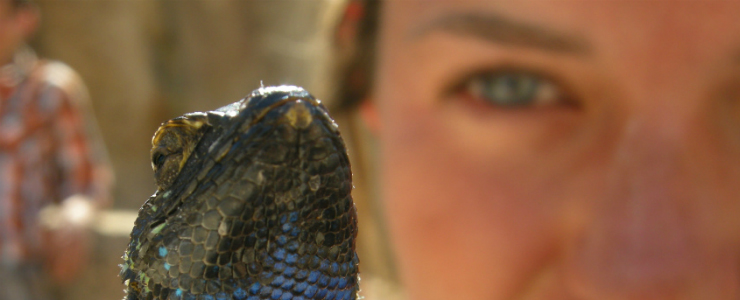Application & Preparation
NATURAL HISTORY FIELD QUARTER 2025 ONLINE APPLICATION
Applications for the spring 2025 Natural History Field Quarter (NHFQ) class are now available and must be submitted online by Sunday, November 3, 2024 by midnight.
NHFQ is 15-unit spring class open to ALL students. It is the only class you can take during your spring quarter. Upon acceptance, anyone may apply for a scholarship to waive part or all of the course fee. No previous camping or outdoor experience is required. See our suggestions for how to prepare to apply and be part of NHFQ.
To learn more, come to our informational meeting on Thursday, October 17 from 7-830pm in Natural Sciences 2 Room 233. If you cannot attend this meeting in person, here is a zoom link. Also, peruse more of this site, visit the Norris Center in Natural Sciences II, room 239, or contact Chris Lay at 831-459-4763 or cml@ucsc.edu.
The NHFQ 2025 application must be submitted online, including a copy of your transcript and an uploaded google doc with answers to the final 7 short-answer questions. These final 7 questions will take time and effort to complete. Below are the 7 questions you need to answer. Remember to thoroughly answer each question, but limit your responses to no more than 2,000 words total per application. You can also access the questions on the online application itself.
Final Short Answer Questions:
- Overall, why do you want to take this course?
- One of the primary goals of NHFQ is to teach you how to learn about the natural world directly through your own close observations of organisms and their environment, being curious, asking good questions, making more observations, and reflecting on all that you have learned. How do you think these nature observation and inquiry skills will contribute to your academic interests at UCSC and your professional goals after college?
- NHFQ students develop their skills and strengths in many areas, including: knowledge of California organisms and ecosystems, critical thinking, written and artistic communication, handling live (and sometimes dead) organisms up close, living away from screens, interpersonal relationships, giving and receiving feedback, networking, problem solving, physical skills and stamina, camping and outdoor living, group living, cooking, nature connection, and much more. How do you think the skills you develop in NHFQ will be valuable in your personal life beyond the course?
- On the “What is NHFQ?” webpage, read the paragraph entitled “Life During Field Quarter”. Describe a time in your life when you have experienced long, demanding days, and the practices/skills/mindset that helped you thrive and overcome the challenges of that situation or environment.
- Describe your previous experiences (other than the one described in question 4) that you feel prepare you for this course. These could include: descriptions of specific experiences from previous coursework in high school or college (we do not need a course list as we have your transcript); job, work, internship, or volunteer experiences; camping, outdoor, and/or nature experiences; experience with nature observation, writing, journaling, drawing, or painting; experiences with group living tied to a schedule; or any other experiences you believe are relevant.
- During NHFQ, a rotating group of 4-5 students are responsible for cooking each day. Suppose it is your group’s turn to cook. You notice one of your group-mates frequently arrives later than the rest of your group, often disappears while others are cooking, and isn't doing their share of the work. How would you handle this situation?
- Is there anything else you would like to tell us about yourself?

